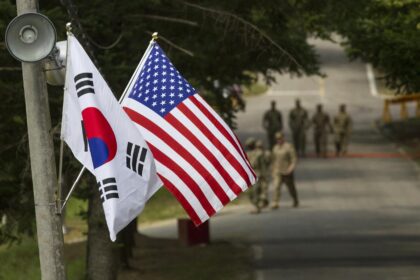The US and China Are Talking Again. Don’t Call It a Reset
After years of strained relations, diplomatic conversations between the United States and China are making a return. However, this is far from a dramatic reset in global affairs. Instead, what we’re witnessing is a strategic recalibration—a carefully measured resumption of dialogue designed to prevent escalation, manage competition, and keep lines of communication open in an increasingly polarized world.
While the tone has softened, the core issues—ranging from trade to technology, military presence, and influence in the Asia-Pacific—remain unresolved. Both Washington and Beijing understand the stakes. What’s changed is not the rivalry itself, but how that rivalry is being managed.
Recent high-level meetings, including visits by U.S. officials like Secretary of State Antony Blinken and Treasury Secretary Janet Yellen to Beijing, have signaled a willingness to engage. Similarly, Chinese counterparts have reciprocated, hosting discussions that aim to stabilize a volatile relationship.
But make no mistake—this isn’t the dawn of a new golden age in U.S.-China ties. There’s no handshake that resets the clock. Instead, what we see is a pragmatic shift toward managing differences through diplomacy rather than allowing them to spiral into confrontation.
Trade negotiations between the US and China in London mark a cautious step toward easing tensions, but not a new beginning. It’s a short-term strategy to avoid further deterioration — a fragile truce that could be reversed at any moment.
At the core is a deeper issue: National security. Both sides now view trade through that lens, and handshakes won’t fix it. Washington must recognize that Beijing seeks respect and won’t accept a one-sided, long-term deal. China, for its part, needs to understand that it won’t be business as usual — and that the US will expect more concessions and market access to the world’s second-largest economy. The alternative is continued hostility, which will make for a more chaotic global trade environment, and a more dangerous world.
The London climbdown is positive, but precarious. Rapprochement has turned into recrimination before. After the initial euphoria of a trade-war ceasefire agreed in Geneva in May, both sides accused the other of reneging on a deal to temporarily lower tariffs that had climbed well above 100%.
Now negotiators say they’ve reached an agreement in principle on a framework to deescalate trade tensions, based on the consensus forged in Geneva. Delegations from both sides will take the proposal back to their respective leaders, following nearly 20 hours of talks over two days. “Once the presidents approve it, we will then seek to implement it,” US Commerce Secretary Howard Lutnick said. The full details of the accord weren’t immediately available, but US officials said they “absolutely expect” that issues around shipments of rare earth minerals and magnets will be resolved.
There are no winners or losers coming out of this, notes Steve Okun, founder and chief executive officer of AC Advisors. The fundamental questions are much larger than any round of talks. “The Trump administration needs to decide whether it views Beijing as a strategic competitor, or an existential threat,” he told me. “Washington can take the economic hit from a trade war, but politically, Xi Jinping can suffer the hit for longer than Trump can. So one side has economic leverage, and the other political leverage — that’s a standstill, for now.”
The Chinese president is biding his time, despite a sluggish economy. In the most recent sign of how the trade war is hurting, exports rose less than expected last month. The worst drop in US-bound shipments since February 2020 — the outbreak of the pandemic — counteracted strong demand from elsewhere. Still, sales to other markets are providing much-needed support for an economy stuck in deflation and struggling with weak domestic demand.
Beijing is sticking to its narrative that this trade war is Washington’s problem, and that China is being unfairly targeted. A recent Xinhua commentary warned that America’s security-focused view of economic issues risks undermining global cooperation.
There is a pathway to peaceful coexistence, but compromises are required, notes Ryan Hass of the Brookings Institution. To break through with Xi, Trump will need to acknowledge that both countries are major powers. Neither can dictate terms to the other. Both would be hurt by high tariffs on each other’s goods — but on their own, they’re not enough to force capitulation.

The US public has no appetite for a broader conflict with Beijing. Disapproval of China’s behavior may be high, but the top priority is still to avoid war. Americans are clear in their desire to manage competition without that escalating into open conflict.
For that to happen, Washington must recognize that Beijing craves respect. The US would be wise to pay heed to the Chinese concept of mianzi or “face” — Xi will only agree to a long-term deal that he can pitch at home and abroad as a win. Beijing has taken lessons from Trump’s first trade war, and judged that agreement to be one-sided in favor of Washington. It won’t make that mistake again.
China doesn’t always like reciprocating face, but officials would be wise to give some to Trump, too. His tariffs have been outlandish, but his supporters also demand that he show strength, not concession. Beijing should be able to understand what happens when politicians need to cater to public pressure.
Neither side has the upper hand to make the other come away an obvious loser. At the most, the London talks might have achieved just enough to help shape the future on a less-hostile basis. That in itself is progress — but it would be a mistake to call this moment a reset.
More From Bloomberg Opinion:
This column reflects the personal views of the author and does not necessarily reflect the opinion of the editorial board or Bloomberg LP and its owners.
Karishma Vaswani is a Bloomberg Opinion columnist covering Asia politics with a special focus on China. Previously, she was the BBC’s lead Asia presenter and worked for the BBC across Asia and South Asia for two decades.
Also Read : 7 Shocking Truths the Murder Case Reveals About India’s Hypocritical Treatment of the Northeast








